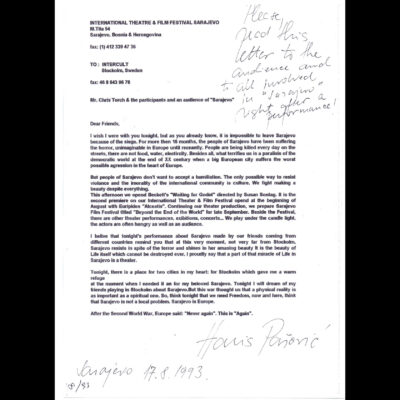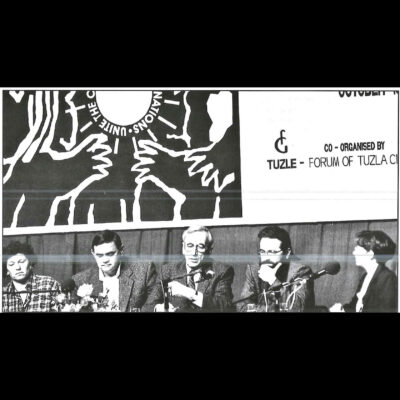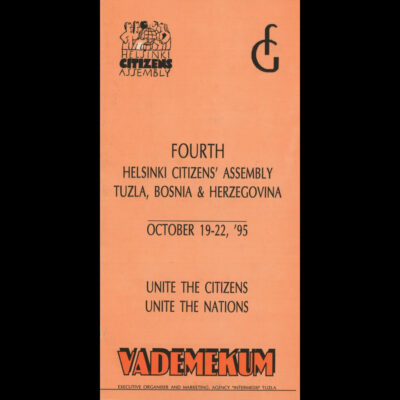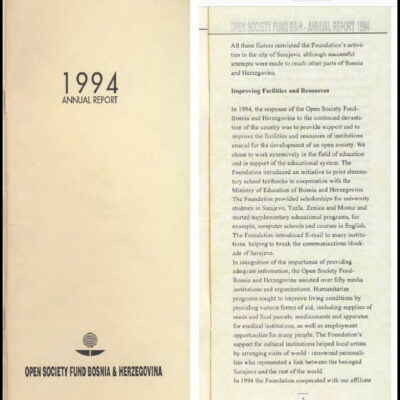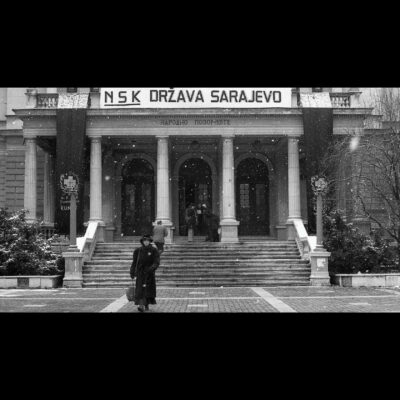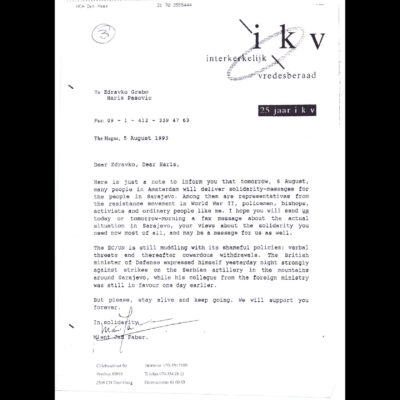| How to act |
Građanske grupe, Kultura, Mediji |
|---|---|
| Solidarity map |
Bosna i Hercegovina, Sarajevo |
| Chronology |
1992, 1993, 1994, 1995, 1996 |
Radio Zid
The independent radio station ZID (The Wall) was created in late 1992 by Zdravko Grebo, Law Professor at the University of Sarajevo, who had emerged since 1990 as one of the leading public intellectuals in Sarajevo. Grebo was a key figure also in other initiatives, for example as BiH-representative of the Helsinki Citizens Assembly and as first director of the Open Society Fund BiH.
Radio ZID saw its mission to preserve Sarajevo’s civic spirit and urban culture attacked and threatened by war and nationalism. Run by only a few full-time employees and a lot of volunteers, the station was broadcasting 24 hours a day, with a wide variety of programs. Different artists and intellectuals had their own shows, and ZID was particularly committed to support the very active music underground scene in Sarajevo. The most iconic event in this regard was the “Rock under the siege”-concert organized in January 1995. But Radio Zid participated also in the organisiation of many other local and international events, such as the “Hiroshima 45 -Sarajevo 1993”-Days, or the Laibach-concert in 1995.
Also thanks to Grebo’s good international connections, Radio ZID became internationally known as one of the symbols of Sarajevo’s spiritual resistance against the siege and all forms of nationalism, not so much because the radio station expressed explicit political positions (what it didn’t), but by its mere incarnation and promotion of alternative culture, urban and cosmopolitan values and sense of humor in a context of violence. Radio ZID also benefited from moral and material support from different international groups and initiatives, especially in order to establish and improve its technical equipment. In autumn 1994, for example, Radio ZID received its own generator so that it was not dependent anymore from other (often unreliable) electricity sources within the besieged city ; this donation had been made possible thanks to a campaign launched in the Netherlands, especially by the Amsterdam-based solidarity group “Press Now”.



